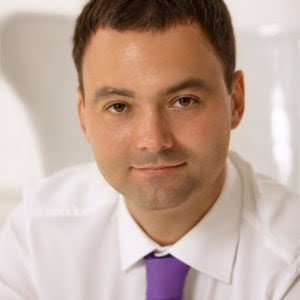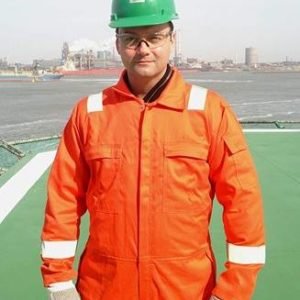Our new Small [Matey] Talk is a kind of interview section on the blog. As title suggests, it’s just a ‘small talk; about events. Thus, it does not aim to be an eye-opener (although we hope it might well be!) or make any great discoveries, but rather it aims to get personal experiences and opinions on various aspects of event planning and design, from a variety of stakeholders (attendees, speakers, planners etc), in the spotlight. I hope you find this section interesting.
My first talk is with Alexey Fadeev, PhD in Economics, Senior Researcher at Institute of economic affairs (Kola Science Centre, Russian Academy of Science)

Alexey, thank you for taking part in our project ‘Small matey talks’. Although we generally aim to cover various types of events, we geniously are interested in business events and meetings, and thus the first question would b e how many business events in your professional field do you visit annually?
Alexey: it is 20+ per year, and these are mainly business and scientific events.
Are those conferences, exhibitions, or something else?
Alexey: Exactly – these are conferences, forums, exhibitions, seminars, meetings of various working groups within forums etc. Also, it might be lectures: for instance, recently I’ve been to Arkhangelsk to do a lecture for the participants of youth project ‘International Lomonosov Club’ for high school students. It is a club for talented young people, but of course we support all those with aspirations and desire to be a high qualified professional. My lecture was about the Arctic and development of Arctic shelf in Russia.
So you are visiting events related to your professional field, oil and gas
Alexey: Yes, I do visit quite a lot of events, 20 is the minimum of conferences and other events I take part in during a year.
What does captures your attention in the first place when you are at an event (as an ordinary attendee)? You’ve got to some conference – what do you pay attention for at once?
Alexey: The first thing is a list of speakers. It happens often that the agenda reads one list of names to make it look impressive and earn more, while at an event the list looks different – once you get there you realise there is no decision-makers as you expected. And you’ve got to listen representatives of companies or governmental bodies with lower status. It can be interesting but anyway it is not what has been expected. Unfortunately, in Russia it still happens when not everybody can guarantee to attend, sometimes plans change. However when it happens with 1 out of 10 speakers it is understandable. The eyebrows raise when it happens with the half of the list. Content, attendee status and overall quality, topics they are going to talk about. Second, this is about a venue and environment. On one hand, exotic destinations are still attractive for the Russian businessmen. It is interesting to go somewhere far away. On the other hand I am witnessing a trend towards choosing Moscow as a destination for conferences on a frequent basis, and I personally like it. To discuss issues related to Russia no need to go to London and look through periscope what is going on here. We’ve got destinations in Russia to go to and hold a conference. It’s even better to go to some regional cities – in the context of oil and gas sector, those cities which are involved into production. These are Murmansk, Arkhangelsk, Khanty-Mansyisk, Astrakhan, for example. One can visit the oil and gas production objects, meet the regional companies involved. I am pleased to see such trend. It is possible to discuss the issue of production in Arctic being in Russia, like in Balchug-Kempinski hotel, and we do so, and even required, particularly being aware of the fact that not every Minister can go to Murmansk. it is more convenient for them to cross a road or drive a few miles away from Kremlin and make a speech at an event. But with a more specific topics I believe it is best to hold an event at a relevant destination.
Regarding the event environment, comfortable conditions are crucial. It is really a no-brainer but we face it from time to time – poor air conditioning, uncomfortable chairs. A conference held at some institution and one has to go miles down its corridors, to find the right conference room; some forget their badges and the security do not allow people in – all those things obviously lower the overall level of the event. Everything should be clear, user-friendly, be not hard to plumb so to say, and very much convenient.
One more thing is of utmost importance. No names, just an example: I’ve recently taken art in a conference as a speaker. The night before I have asked for a final agenda and it was not ready yet. I got it very late at night, and this shows the level of organising. Some version of the event programme should always be available on the website; it can be under ongoing update but it should be put up.
 It’s great you can tell about so many details – these are crucial things. Are you attending events abroad?
It’s great you can tell about so many details – these are crucial things. Are you attending events abroad?
Alexey: Yes, sure
How are they different from those held in Russia, in your opinion? Are they different at all, let’s start with that?
Alexey: Frankly speaking, it’s less and less different. Russian event organisers have learnt how to do a world level conferences, that’s for sure. One great example is Oil & Gas Sakhalin conference series – great work.
Organisation is on the highest level, from the very start: the way the team operates, the way they communicate with speakers, the fact they aim to take into account our interests, the company’s goals – what we would like to get from the event. The way they aim to meet the expectations. These things make up the event’s level.
How do they communicate with speakers? Do they send a list of questions or call to talk or what?
Alexey: They talk. Surveys don’t work. Nobody likes to fill them in, spend time, it’s better to call and discuss the issues – in live conversation one could learn much more. They’d ask: tell us about the current challenging issues, and what would you like to hear. They organise sessions, round tables and invite key experts of the industry who know the subject. So starting with that and ending with a nice lunch – all is good. Lunches are important part of an event, too. Sometimes one can still hear: have you come to eat or to do business? Well, both indeed. If you’ve got a good meal and you’ve got a chance to continue a dialogue in a comfortable environment you’ve got to have a good networking. Networking, including the one after the event is difficult to overestimate. And I’ve used to attend such events where food & beverage disappeared 30 minutes after the lunch had started, I got puzzled. The worst thing about that was it happened at expensive events, with a fee of 1500 euro and above. So this side of the organisation process is also very important. it is crucial to have a transfer organised, a nice lunch, perhaps some excursions. That’s very important if we talk excursions to some facilities.  There are some sites which are closed even for those working in the oil&gas industry. While when it is an organised excursion within an event and the organisers say – there would be so many people and transport, and we will just show the site, and it is important since these are you potential clients or partners and so on – in such cases there is an opportunity to visit the facility and see the unique things. I have had such experience with a LNG plant Snohvit in Norway
There are some sites which are closed even for those working in the oil&gas industry. While when it is an organised excursion within an event and the organisers say – there would be so many people and transport, and we will just show the site, and it is important since these are you potential clients or partners and so on – in such cases there is an opportunity to visit the facility and see the unique things. I have had such experience with a LNG plant Snohvit in Norway
When we talk high quality we should take into account everything – even which paper is used for printing a conference’s agenda would speak a lot about the event.
What makes up a delegate folder. When you’ve got a leather brief case and there is a phone charger, an agenda printed on sophisticated paper – you’ve got to think you’re attending a high-profile event. You’ve got to think it’s not a business or not a business only. Of course I know it is a business and people earn for living by making events and it’s all fine – just produce a good quality, give us a good quality product.
Sure. Well but still is there any feature which is common to Russian events and not intrinsic to foreign events? Or vice versa? Any difference that catches your eye? Or it is not the case nowadays?
Alexey: I would not draw a line between events held in Russia and in other countries. The only factor is that over the recent years there has been high expectations [from both sides] in terms of practical outcomes of any conference. People use to get together and discuss issues they care about, some get useful information, but that’s it, there are no further actions taken. Fortunately, it is trending now that conferences have a kind of roadmap as one of its outcomes. It is a kind of a document which speakers contribute to, too, and it is sent out to attendees after the event. It is quite a recent phenomenon, and I’ve witnessed that at Russian conferences only. The document is then sent to the authorities, to make those decision-makers aware of what has been discussed and what conclusions have been made. It can be helpful.
Which criteria do you use to assess how successful the event has been for you personally? По каким параметрам вы оцениваете, насколько эффективным было мероприятие для вас лично?
Alexey: I’ve got a twofold role.  Mainly I take part in events as a speaker, and my goal is to effectively communicate the main point of my presentation. Another goal is networking – making and developing new contacts, talking to those companies which are interesting partners to our institution. It is also about promoting organisation’s brand.
Mainly I take part in events as a speaker, and my goal is to effectively communicate the main point of my presentation. Another goal is networking – making and developing new contacts, talking to those companies which are interesting partners to our institution. It is also about promoting organisation’s brand.
I had a question about communication before and after the event, but I hear you gave half of the answer now.
Alexey: Sure, it is important at all times.
Ok, communication before the event includes discussions – you answer the phone call and can easily tell all your expectations to the organisers. What kind of communication after the event is crucial to you?
Alexey: It is some feedback
What kind of feedback? Another phone call?
Alexey: Yes, discussion is the most effective way. Surveys, any writing down is more complicated. I always do that when I am asked to, but I’d say it is somewhat inconvenient. Live, real communication is better. Paper can’t reflect the nuances of some answers;’was good’ or ‘more likely it was good’ – makes one think: why ‘more likely it was good’ and not ‘did not like it’? So I usually prefer some live feedback. I’ve had two great presentations recently, at International Lomonosov Club and ‘Arctic. Made in Russia’ events – it was fantastic audience engagement. I really enjoy interacting with audience which is responsive to the information I present.
What do you think about the tech advancements in the events industry, technologies that are being incorporated into events – iBeacons, e-badges etc?
Alexey: It is all great indeed. For example, live polling. Note though that not everybody is ready for that. Technologies are developing faster than people’s skill of making use of such tech. Live polling is used at many events. It allows instantly see the reaction from the attendees. I am very positive overall about the technological developments and I’d say the level of tech involved is high at Russia-based events.
But what I’d note is that tech is important but it is what determines the conference’s success. Let us have some people who are not great at using technologies during their presentations but they would be right to the point and tell us useful stuff. It is not that important if the badge is printed or digital. High tech adds some cherry to the cake, that’s all.
A couple of short final questions: what is the most irritating (one) thing about attending an event for you?
Alexey: Boring speakers. It is something to blame organisers for, in part – they sometimes invite people who don’t have great presentation skills, or those who speak off-topic. It also used to be a lot of sales kind of speeches. Or just boring presentations which make everybody asleep. And there are others. No, I don’t mean a speaker should be a show man. But they should definitely possess presentation skills and be able to work with presentation software at some basic level.
What was the most interesting event you attended?
Alexey: hard to pick one.
Let’s name a few?
Alexey: “Sakhalin Oil and Gas’, ‘Arctic shelf development: step by step’ (held in Murmansk), ‘Arctic. Made in Russia’ – these three, just off the top of my head.
Do you have a dream event – the one you are keen to attend?
Alexey: I’m quite interested in OTC annual event.
Why this one?
Alexey: This is the largest industry exhibition related to the offshore technologies globally. it is held in Houston, in a huge venue, there are many conferences held in parallel etc. It is so well-known event that there is no doubt in high level of its design. A similar event is held in Europe, Offshore Northern Seas, and I’ve attended it several times.
I would highlight attending Russia-based conference however. Those I mentioned earlier.  Frankly, I am against corporate travel to some exotic places. I don’t see the point to go to Abu-Dabi for a training or seminar in my field. It is in some cases just a matter of making money, and location serves as attraction. But I am quite neutral to this. I had more pleasure travelling to Astrakhan last summer – I have not been there before, and enjoyed it a lot.
Frankly, I am against corporate travel to some exotic places. I don’t see the point to go to Abu-Dabi for a training or seminar in my field. It is in some cases just a matter of making money, and location serves as attraction. But I am quite neutral to this. I had more pleasure travelling to Astrakhan last summer – I have not been there before, and enjoyed it a lot.
I am thinking aloud now – you reiterate that for any participant of any event emotions and experience are crucial. This is what we all talk about now, in the industry
Alexey: Indeed
…there are experiential campaigns from various brands, and event industry is now heavily involved into it. Seems like organisers should strive to add as much that live, real experience to their event as possible – to make sure participants get those emotions and thus, remember the event as something outstanding?
Alexey: Indeed, this is important
Content surely, is king but emotions, too?
Alexey: Absolutely. If we talk say, about building some marine facilities or oil tanks, and there is a conference which agenda includes attending some unique boat – believe me, such conference would be much more memorable. Today you’ve heard about it and tomorrow you see it with your eyes – that’s absolutely important.
Ok. Last question – what question would you ask an organiser? What would you be keen to learn about event industry and its functioning?
Alexey: When I worked for Murmanshelf,
I was partly involved into events planning. I am fully aware how hard this work is, and how much is invisible to people – they see just the tip of the iceberg.
I am delighted with those companies which can get highly ranked officials to their events. This skill of convincing the VIP to drop everything and attend a conference especially when it comes to travelling somewhere.. Using arguments, convincing, driving – this is crucial skill. And this is what makes the event manager successful. Well, this might be the question – what is the magic touch, what are the methods to engage celebrities, high-profile people, top experts and key decision-makers?
That’s a great question indeed. I’m going to collect all questions so that we could look for the answers to all of them, step by step. And I will let you know once this one has got some resolution.
Alexey, thanks a lot for our small talk today!



